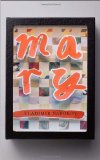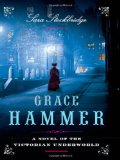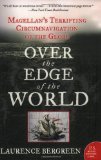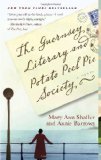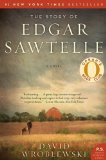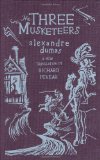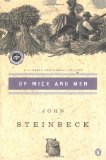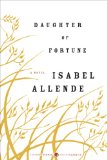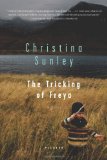Category: Book Reviews
Book Review: “Mary” by Vladimir Nabokov
December 21, 2009 { Book Reviews }To better understand Nabokov I decided it might make sense to read him from the beginning. I already owned a copy of Mary–his first novel, written in Russian–and pulled the copy off of its bookcase last night with aims to scan the first few pages (to see what I was in for). Quick answer: “Utterly magnificent without qualification.”
Book Review: “Grace Hammer” by Sara Stockbridge
October 9, 2009 | 1 comment { Book Reviews, Books & Learning }Pickpocketing. Urban filth: cold, grey grimy. Poverty, crime and mortality. Dickens. Rain and horses and fashion. Yep, Victorian London. Sara Stockbridge’s novel recounts all of its requisite stereotypes–emphasizing the east-end, grimmer ones–without adding much to consider. “Grace Hammer” is a sometimes mystery, sometimes crime story, sometimes quasi-historical vignette that, while it has a collection of endearing impressions, doesn’t seem to have much to say.
Book Review: “Over the Edge of the World” by Laurence Bergreen
October 7, 2009 { Book Reviews, Books & Learning }Of late, I have been intrigued by books about exploration, geography, and the Age of Discovery. 1521: It’s the height of the Spanish Inquisition. The New World has been discovered, but is mostly a cartographic blank spot (embellished with dragons and mermaids). European men and women are dirty and poor, for the most part, and [...]
Book Review: "Krakatoa" by Simon Winchester
August 3, 2009 { Book Reviews, Books & Learning }I’m jealous of Simon Winchester, which always leaves me in pouting mood when I read his books: He writes about the subjects I would write about, too, if I had my proverbial act together, with a multi-disciplinary elan reminiscent of wood-paneled studies, lairs of 19th century British men of leisure. I picture Winchester’s desk, as [...]
Book Review: "The Guernsey Literary and Potato Peel Pie Society"
July 29, 2009 { Book Reviews }Charming. Enjoyable. Darling. Quaint. Manipulative? Trite?
Though the ultimate outcome of the book is obvious from a mile away, there are some pops and blasts in the middle of the story that did make me catch my breath. Guernsey’s captivating and mysterious idiosyncrasies are used to good effect as a foil to contrast with the mind-blasting violence of the war. Cue some horrifying scenes in German concentration camps and bombing raids in London. There’s nothing new here, but it’s still a bit of a shake-up.
Book Review: "The Story of Edgar Sawtelle" by David Wroblewski
July 22, 2009 { Book Reviews }Maybe it is because Wroblewski appropriated a storyline that is so robust that it cannot fail, or maybe it is that he is gifted: whatever it is, this novel is mercilessly compelling. It had me in its clenches to the last page, though its denouement was not brief. It was ceaselessly interesting. Things kept happening. But Wroblewski is more than a plot man–there were passages of enviable beauty (that is, I wish I could write like that).
Book Review: "The Three Musketeers" by Alexandre Dumas
July 8, 2009 | 1 comment { Book Reviews }Here’s a book that has infiltrated popular culture to a certain extent for over 150 years. I’ve seen derivative movies, ridden themed amusement rides, shouted ‘All for one…!’ during heated moments. But I’d never read the book itself.
Sure, I can check it off of my ‘well read’ list now. But the experience, though entertaining for the most part, left me wondering exactly what the big deal is about this novel.
Book Review: "Of Mice and Men", John Steinbeck
June 22, 2009 { Book Reviews }This isn’t the first time I’ve read this book, but it is the first time I’ve read it with an eye to notice Steinbeck’s drama-like structure. Almost entirely dialogue and scene description (stage instruction, as it were), this novella is more of a play than was initially obvious to me. As such, being dialogue-driven and narrative-sparse, this is not my favorite Steinbeck by a long sight.
Book Review: "Daughter of Fortune" by Isabel Allende
June 9, 2009 { Book Reviews, Books & Learning }Absorbing and quietly magical, with scads of feminine energy and colonial oppression. An interesting work when paired against Allende’s master work, The House of Spirits, which I read within a month of this novel. Allende chooses appealing patterns for her characters, giving us something that is both an easy pleasure and a satisfying literary read.
Book Review: “The Tricking of Freya” by Christina Sunley
April 15, 2009 { Book Reviews }Woven with the ageless mystique of Nordic myth and the wistful complexities of families, Sunley’s debut novel aches with something that notches it into the truly compelling. Her prose is wiser than her rookie status would suggest, echoing with cadences and feminine woe reminiscent of Joyce Carol Oates.
From the Archive
From the archive, a few random posts that you might not have seen before.
- Oct 7, 2007 { Life }
House Transformation (Before my Time) - Jul 23, 2005 { Life }
The final struggle - Jan 15, 2007 { Life }
Calvinism: How Did Anyone Think this was a Good Idea? - Jan 29, 2007 { Books & Learning }
"In the Heart of the Sea: The Tragedy of the Whaleship Essex" by Nathaniel Philbrick

